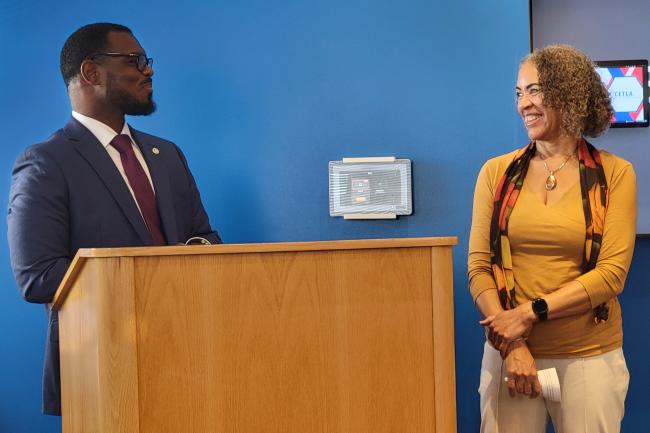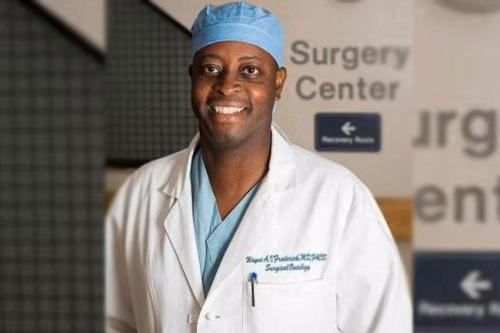In the late 1990s and early 2000s, Howard faculty grappled with four major challenges:
-
Computers were relatively new and in short demand
-
Faculty and student’s computer literacy rates were low
-
Technical support for faculty working with new technologies was limited
-
Formal training for faculty on teaching and assessment methods were not readily available
However, Dr. Teresa Redd (M.A., ’82), a tenured professor in the Department of English, had some ideas about how to solve those problems. In 2003, she put those ideas on paper and founded the Center for Excellence in Teaching, Learning, & Assessment (CETLA), a body designed to cultivate Howard’s culture of teaching and learning.
There weren’t any official places on campus where faculty could find consistent instruction and immediate support, Redd says. Her goal was to “establish Howard as a leader in the movement to strengthen college teaching – especially the teaching of African-American students.”
Having already served as a longtime professor, spearheading several writing programs in Howard’s Department of English, Redd wrote the strategic plan for CETLA and had a fully operational center up and running in less than two months. Giving faculty a framework to assess their practices was paramount. “This was a way of getting valuable feedback that they could use to improve their students’ learning experience,” she says.
She also wanted to ensure that faculty were able to leverage the new technologies that were being rolled out across campuses nationwide. For example, one of the programs she developed was HU-Teach, which aimed to help faculty develop hybrid and distance learning courses. “This was well before the pandemic struck so there was no mandate at that point for faculty to teach online,” she says.
Other programs launched during her tenure include Green Teaching, which sought to incentivize faculty to reduce paper usage and energy consumption, and Teaching at Howard, an online orientation for new faculty. CETLA also created custom workshops that were tailored to the needs of a University department, college or school.
Then there were the formal efforts to recognize excellence in teaching. For example, The Teaching With Technology Award was given each year to faculty members who came up with innovative uses for instructional technology. “We showcased the innovators so other faculty could learn from them,” Redd says.
CETLA’s methods inspired the admiration of other learning institutions. In fact, it was not uncommon for delegations from other Historically Black Colleges & Universities (HBCUs) and institutions in Africa to visit to learn about CETLA’s processes. “I remember at one point feeling as if this was a pilgrimage,” Redd says.
Though participation in CETLA’s programs is in most cases voluntary, by the time Redd retired in 2016, nearly two thirds of Howard’s faculty had engaged with the Center in some way. Today CETLA continues its work under the leadership of Morris Thomas, Ph.D. with such programs as Best Practices in Distance Learning and Teaching Assistant Training.
As CETLA celebrated its 20th anniversary last year, Redd’s brainchild is still helping Howard excel when it comes to training the next generation of scholars. “HBCUs are uniquely equipped to create an effective learning environment, especially for African-American students,” she says.






